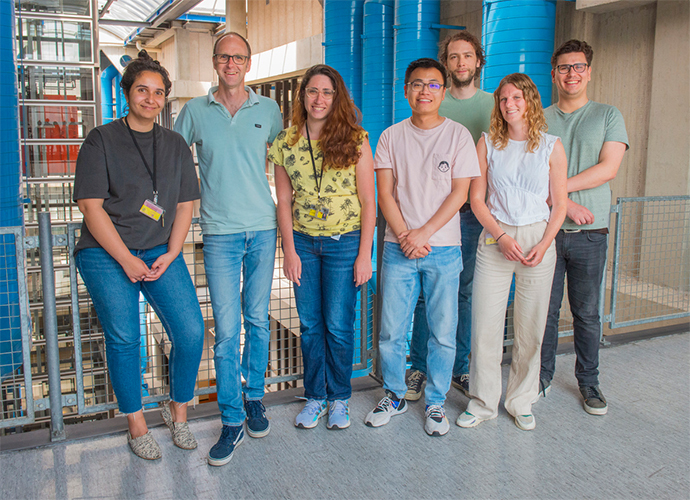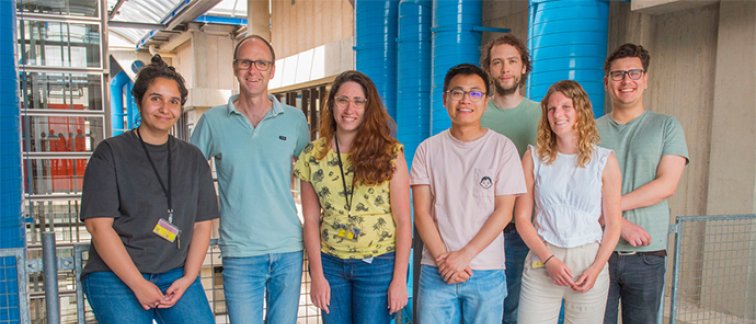Our immune system plays a vital role in combating pathogens, but it can also be the source of diseases, including malignancies. B cells are crucial components of adaptive immunity, responsible for the generation and production of a diverse repertoire of antibodies.
Our research group is focused on studying the development and function of B cells, as well as their transformation into lymphoma cells. Specifically, we are interested in investigating the germinal center (GC) reaction, which is essential for the defense against pathogens through antibody production and serves as the origin for most human B-cell malignancies.
GCs are specialized microstructures that form in secondary lymphoid organs following exposure to antigens. Within these temporary structures, B cells undergo modifications to their B-cell receptor (BCR) genes, allowing them to generate high-affinity antibodies against the specific pathogen.
However, during this process, the DNA mutation machinery can accidently target oncogenes and tumor suppressor genes, inadvertently promoting the malignant transformation of B cells. A better understanding of the targeting properties and the regulation of the DNA mutation machinery in the GC will advance our understanding of the etiology of B-cell malignancies and perhaps yield novel therapeutic options to prevent the development and progression of these malignancies.
Cancer cells, including malignant B cells, rely on the aberrant activation of signaling pathways to promote abnormal growth and survival. Oncogenic mutations or the exploitation of existing signaling pathways found in normal cells can result in pathogenic signaling. Another important research topic in our group is the identification of key signaling pathways in multiple myeloma (MM), a malignancy of plasma cells (end-differentiated B cells) that reside in the bone marrow. We study the contribution of the bone marrow microenvironment towards drug resistance in MM, which will provide opportunities to develop new precision medicine strategies.
The Guikema Research Team aims to:
- Determine the regulation and the consequences of the GC-related DNA mutation process in the development and the progression of B-cell lymphomas.
- Develop novel strategies to target pathogenic signaling pathways in B-cell lymphoma and multiple myeloma.
To achieve this, we make use of in vitro and in vivo models, apply several omics-based methods, functional CRISPR screening approaches, and computational modeling. The Guikema group is embedded in the CCA ‘Cancer Biology’ theme and the Lymphoma and Myeloma Center Amsterdam (LYMMCARE). We closely collaborate with the groups of Dr. Marcel Spaargaren (Dept. Pathology, location AMC), Prof. Dr. Antoine van Kampen (Dept. Bioinformatics, location AMC), Dr. Huub Hoefsloot (SILS, UvA), Prof. Dr. Tuna Mutis (Dept. Hematology, location VUMC) and Dr. Richard Groen (Dept. Hematology, location VUMC).
For more information, contact Dr. Jeroen Guikema.
Group members:
Guus de Wilde
Tijmen van Dam
Yuxin Li
Maria Stratigopoulou
Maaike Janssens
Djera Khan
Fer de Wit
Text by Dr. Jeroen Guikema

Photo (from left to right): Djera Khan, Jeroen Guikema, Maria Stratigopoulou, Yuxin Li, Guus de Wilde, Maaike Janssens, Tijmen van Dam.
Photo taken by Wim van Est.
This article was created for Cancer Center Amsterdam.

